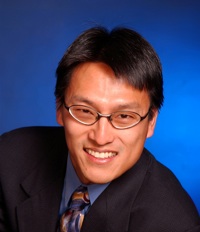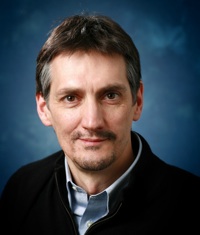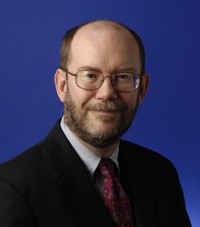Green HPC Podcast Episode 1: Sifting Through The Hype
In the inaugural episode of the Green HPC podcast series we will examine the issues that datacenter managers and system designers are facing with high performance computing systems of all sizes today. Even if you aren’t “green at heart,” there are very practical and compelling reasons why a growing awareness of energy use in your datacenter — how much, where it goes, and what it costs you — is critical to your success.
Listen to Episode 1: Sifting Through The Hype [audio:http://insidehpc.com/media/GreenHPCJune09/GreenHPCEp1.mp3]
Download Episode 1
Get the transcript
In this episode we hear from Wu-chun Feng of the Green500, Wilf Pinfold of Intel, Horst Simon of Lawrence Berkeley National Lab, and Dan Reed of Microsoft Research. We’ll hear from these leaders in HPC and technology how the conversation about energy in HPC has evolved — did you know one of our guests was booed off the stage giving some of the early talks about green HPC?
And we’ll also hear very practical reasons that everyone involved in high performance computing and supercomputing needs to be concerned about their energy consumption.
From 50,000 feet, it’s about improving the standard of living for everyone. Supercomputing is a technology that is vital to the continued develop of our culture and our civilization and the barrier to bringing those benefits to even more people is the amount of energy supercomputers require. Yes, reducing energy use is goodness, but an equally powerful reason to go green in HPC is to be able to bring the benefits of technology to even more people.
Not at 50,000 foot view kind of person? No problem…as several of our guests point out, there are very practical one-datacenter-at-a-time reasons to be aware of green HPC as well. You’d like to spend more money on computers and less on energy right? Or maybe your power distribution system can’t handle your next upgrade and you can’t afford more power? Then solutions in green HPC are very much solutions you need to know about.
Listen to Episode 1: Sifting Through The Hype [audio:http://insidehpc.com/media/GreenHPCJune09/GreenHPCEp1.mp3]
Download Episode 1
Get the transcript
Guest Bios and Links
Wu-chun Feng, Green500
 Wu-chun Feng (or simply “Wu”) is an Associate Professor of Computer Science and Electrical & Computer Engineering and Director of the Synergy Laboratory at Virginia Tech (VT). He also serves as the Chief Technology Officer of EnergyWare. Previous professional stints include The Ohio State University, Purdue University, University of Illinois at Urbana-Champaign, Orion Multisystems, Vosaic, IBM T.J. Watson Research Center, NASA Ames Research Center, and most recently, Los Alamos National Laboratory.
Wu-chun Feng (or simply “Wu”) is an Associate Professor of Computer Science and Electrical & Computer Engineering and Director of the Synergy Laboratory at Virginia Tech (VT). He also serves as the Chief Technology Officer of EnergyWare. Previous professional stints include The Ohio State University, Purdue University, University of Illinois at Urbana-Champaign, Orion Multisystems, Vosaic, IBM T.J. Watson Research Center, NASA Ames Research Center, and most recently, Los Alamos National Laboratory.
While his research interests lie at the synergistic intersection of systems software, middleware, and applications software for high-end computing, he is perhaps best known for his work in green supercomputing. In 2001, Wu introduced the controversial notion of “low power” to the world of supercomputing at Supercomputing 2001 (SC|01). Shortly thereafter, he debuted Green Destiny, a 240-node supercomputer in 5 square feet that consumed a mere 3.2 kilowatts of power (when booted diskless). This cluster ultimately produced a Linpack rating of 101 Gflops, which would have placed it in the TOP500 List at the time. As a consequence, this green supercomputer achieved a level of notoriety that led to international news coverage, including the New York Times, CNN, International Herald Tribune, PC World, Slashdot, and BBC News, as well as a prestigious R&D 100 Award in 2003. Since that time, Wu helped to establish a low-power supercomputing company called Orion Multisystems and has been actively involved in architecting power-aware software that “raises the fuel efficiency of a high-octane supercomputer,” i.e., it reduces energy consumption while maintaining performance, and serves as the basis of his latest start-up company, EnergyWare. Finally, he developed the concept of a Green500 List (http://www.green500.org/) in 2006, which officially made its debut in 2007 at SC|07.
He received B.S. degrees in Electrical & Computer Engineering and Music in 1988 and an M.S. in Computer Engineering in 1990 from Penn State University in 1990. Upon returning from a stint in industry, he completed a Ph.D. in Computer Science from the University of Illinois at Urbana-Champaign in 1996. He is a senior member of the IEEE and was listed on HPCwire’s Top People to Watch List in 2004.
Links
- Supercomputing in Small Spaces
- The Green500 List
- The Synergy Lab at Virginia Tech, the laboratory that Wu directs and contains his green supercomputing work as well as other high-end computing research.
Wilf Pinfold, Intel
 Dr. Wilfred Pinfold is Director, Extreme Scale Systems at Intel Corporation where he is responsible for developing long-range technology research programs in areas relating to extreme parallelism, resilience, and energy-efficiency. He has 23 years of experience in high performance computing, including leadership roles in Meiko Scientific and in Intel’s Supercomputing Systems Division. Recently, he has served as General Manager of Integrated Analytic Solutions, Technology Director of Microprocessor Research Labs and Director of Strategy and Business Development. He received his Ph.D. in Computational Fluid Dynamics from the University of Strathclyde, Glasgow. He is a member of the Board of Directors for DCS Corporation in Alexandria Virginia, on the Board of Advisors for the Center for Coastal Margin Observation and Prediction at Oregon Health Sciences University and an adjunct Professor at Portland State University. This year he is the General Chair of the SC09 conference that will bring 11,000 scientists, engineers and educators to Portland for a week in November.
Dr. Wilfred Pinfold is Director, Extreme Scale Systems at Intel Corporation where he is responsible for developing long-range technology research programs in areas relating to extreme parallelism, resilience, and energy-efficiency. He has 23 years of experience in high performance computing, including leadership roles in Meiko Scientific and in Intel’s Supercomputing Systems Division. Recently, he has served as General Manager of Integrated Analytic Solutions, Technology Director of Microprocessor Research Labs and Director of Strategy and Business Development. He received his Ph.D. in Computational Fluid Dynamics from the University of Strathclyde, Glasgow. He is a member of the Board of Directors for DCS Corporation in Alexandria Virginia, on the Board of Advisors for the Center for Coastal Margin Observation and Prediction at Oregon Health Sciences University and an adjunct Professor at Portland State University. This year he is the General Chair of the SC09 conference that will bring 11,000 scientists, engineers and educators to Portland for a week in November.
Links
Horst Simon, Lawrence Berkeley National Lab
 Horst Simon is Associate Laboratory Director at Lawrence Berkeley National Laboratory for Computing Sciences and the Division Director for the Computational Research Division and Adjunct Professor of Computer Science at the University of California, Berkeley. His research interests are in the development of sparse matrix algorithms, algorithms for large-scale eigenvalue problems, and domain decomposition algorithms. His recursive spectral bisection algorithm is a breakthrough in parallel algorithms. He was also honored with the 1988 Gordon Bell Prize. He has served as a senior manager for Silicon Graphics, the Computer Sciences Corporation, Boeing Computer Services, and has been a member of the faculty at the State University of New York. He is currently a member of the advisory boards of more than five research organizations located throughout the world and is a member of many journal editorial boards and one of four editors of the twice-yearly “TOP500” list of the world’s most powerful computing systems.
Horst Simon is Associate Laboratory Director at Lawrence Berkeley National Laboratory for Computing Sciences and the Division Director for the Computational Research Division and Adjunct Professor of Computer Science at the University of California, Berkeley. His research interests are in the development of sparse matrix algorithms, algorithms for large-scale eigenvalue problems, and domain decomposition algorithms. His recursive spectral bisection algorithm is a breakthrough in parallel algorithms. He was also honored with the 1988 Gordon Bell Prize. He has served as a senior manager for Silicon Graphics, the Computer Sciences Corporation, Boeing Computer Services, and has been a member of the faculty at the State University of New York. He is currently a member of the advisory boards of more than five research organizations located throughout the world and is a member of many journal editorial boards and one of four editors of the twice-yearly “TOP500” list of the world’s most powerful computing systems.
Links
- Presentation: Energy Efficient Computing-From Bits to Buildings
- Leadership in Energy Efficient Computing
- Guide to self-benchmarking your datacenter from LBNL
Daniel A. Reed, Microsoft Research
 Dan Reed is Microsoft’s Corporate Vice President of the eXtreme Computing Group (XCG), which conducts for R&D on parallel and extreme scale computing. XCG was formed with the goal of developing radical new approaches to ultrascale and high-performance computing hardware and software. The group’s research activities include work in computer security, cryptography, operating system design, parallel programming models, cloud software, data center architectures, specialty hardware accelerators and quantum computing. Dr. Reed has served as a member of the U.S. President’s Council of Advisors on Science and Technology (PCAST) and as a member of the President’s Information Technology Advisory Committee (PITAC). On PCAST, he co-chaired the Networking and Information Technology subcommittee and co-authored a report on the National Coordination Office’s Networking and Information Technology Research and Development (NITRD) program called “Leadership Under Challenge: Information Technology R&D in Competitive World.”
Dan Reed is Microsoft’s Corporate Vice President of the eXtreme Computing Group (XCG), which conducts for R&D on parallel and extreme scale computing. XCG was formed with the goal of developing radical new approaches to ultrascale and high-performance computing hardware and software. The group’s research activities include work in computer security, cryptography, operating system design, parallel programming models, cloud software, data center architectures, specialty hardware accelerators and quantum computing. Dr. Reed has served as a member of the U.S. President’s Council of Advisors on Science and Technology (PCAST) and as a member of the President’s Information Technology Advisory Committee (PITAC). On PCAST, he co-chaired the Networking and Information Technology subcommittee and co-authored a report on the National Coordination Office’s Networking and Information Technology Research and Development (NITRD) program called “Leadership Under Challenge: Information Technology R&D in Competitive World.”
Related links and content
Jon Koomey who has done a lot of thinking and writing about these issues was recommended to me as a potential guest on the series by several of the people I talked to. I would have loved to be able to include his perspective directly, but scheduling conflicts conspired against us. Still, he kindly offered some related links that you may find helpful.
- datacenters.lbl.gov, which has a lot of relevant information about efficiency in data centers, including some measured data and analysis of DC power distribution
- The Green Grid
- The Uptime Institute
- EPA report to Congress
- Worldwide electricity used in data centers. Environmental Research Letters. vol. 3, no. 034008. September 23.
- Estimating regional power consumption by servers: A technical note. Oakland, CA: Analytics Press. December 5.
- Estimating total power consumption by servers in the U.S. and the world. Oakland, CA: Analytics Press. February 15.



